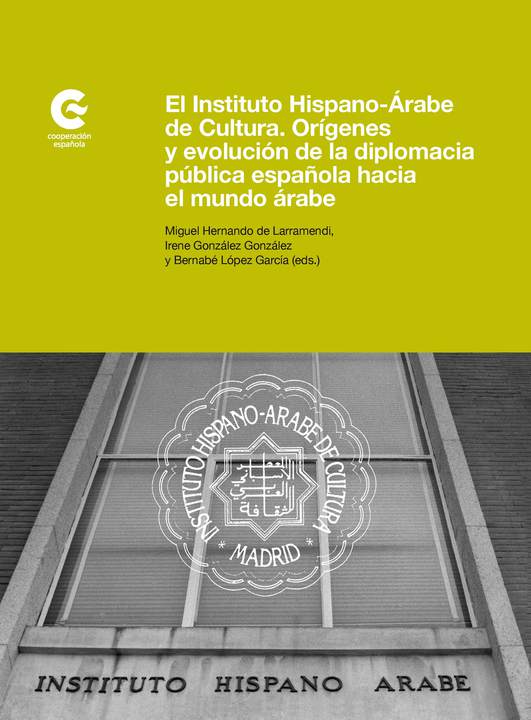Books and publications
Index / Activities / Books and publications / The Spanish-Arab Institute of Culture
The Spanish-Arab Institute of Culture
December 14, 20157:00 p.m.
MADRID
Casa Árabe Auditorium (at Calle Alcalá, 62).
7:00 p.m.
Free entry until the event’s capacity is reached.
In Spanish.
Casa Árabe and the AECID are presenting this work, which reviews the origins of Spain’s public diplomacy in the Arab world and how it has changed over time.
The presentation of this work, edited by Miguel Hernando de Larramendi, Irene González González and Bernabé López García, will include the honored presence of Miguel Cruz Hernandez, an Arabist and the first assistant director of the Spanish-Arab Institute of Culture, as well as the participation of Pedro Villena, the General Director of Casa Árabe; Manuel Gómez Acebo, the General Director for the Mediterranean, Africa and the Near East at the Spanish Ministry of Foreign Affairs and Cooperation; Itziar Taboada, Director of Cultural and Scientific Relations at the Spanish International Development Cooperation Agency (AECID) and Bernabé López García, an honorary professor of the Contemporary History of Islam at the Universidad Autónoma de Madrid.
This book reconstructs the history of the Spanish-Arab Institute of Culture (IHAC), created in 1954 as an institution responsible for promoting the relations between Spain and the Arab countries. In 2014, the 60th anniversary of this institution was celebrated, an institution which was transformed into the Institute of Cooperation with the Arab World (ICMA) in 1988, within the framework of the Spanish International Cooperation Agency (AECI). At the present time, this work continues to be carried out by a network of institutions for public diplomacy with tasks and responsibilities in the Arab and Muslim world, one of the most notable of which is Casa Árabe. The IHAC made a major contribution to the training of several generations of specialists on this region.
The publication of this monograph is important to everyone interested in foreign policy and Spanish and European cooperation, as well as contemporary history and Arab and Islamic studies.
This book reconstructs the history of the Spanish-Arab Institute of Culture (IHAC), created in 1954 as an institution responsible for promoting the relations between Spain and the Arab countries. In 2014, the 60th anniversary of this institution was celebrated, an institution which was transformed into the Institute of Cooperation with the Arab World (ICMA) in 1988, within the framework of the Spanish International Cooperation Agency (AECI). At the present time, this work continues to be carried out by a network of institutions for public diplomacy with tasks and responsibilities in the Arab and Muslim world, one of the most notable of which is Casa Árabe. The IHAC made a major contribution to the training of several generations of specialists on this region.
The publication of this monograph is important to everyone interested in foreign policy and Spanish and European cooperation, as well as contemporary history and Arab and Islamic studies.

